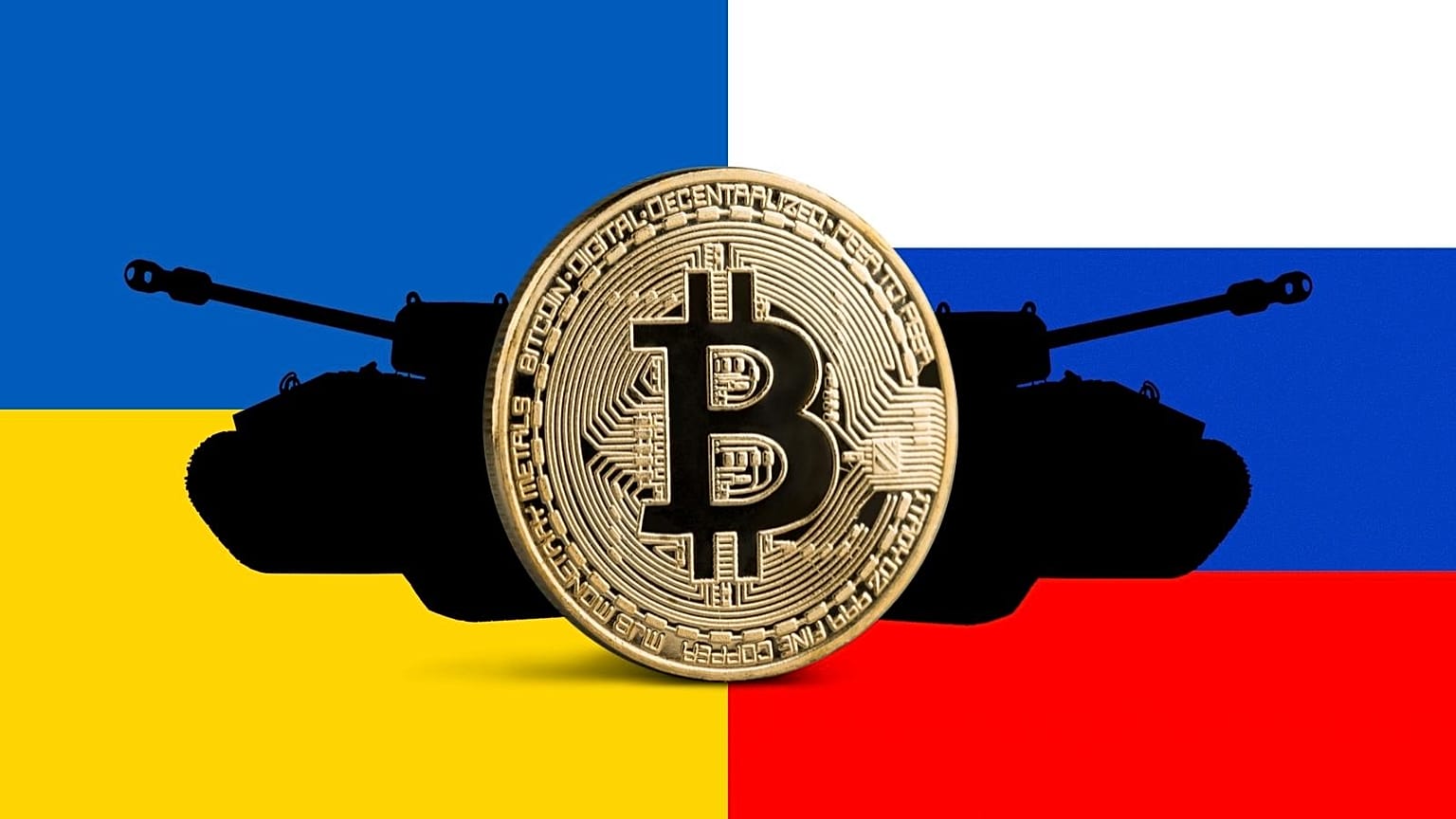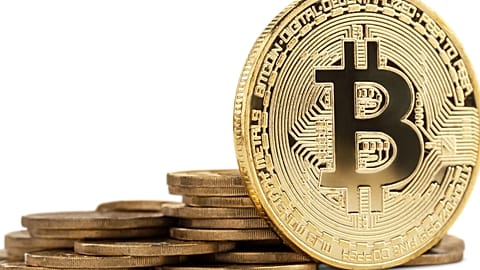Given its first global opportunity to show its decentralised prowess, how has crypto responded to the war in Ukraine?
The views and opinions expressed in this article are those of the author.
 ADVERTISEMENT
ADVERTISEMENT
 ADVERTISEMENT
ADVERTISEMENT
Analysing crypto assets in the context of the war between Russia and Ukraine is a complicated subject, which makes it all the more important to do so correctly.
With the carnage and continued horror unfolding in Ukraine, having a policy conversation around the role of crypto – or any financial instruments – can seem unimportant, but that misses the broader point.
Economic sanctions, which in essence have barred Russian institutions from global financial and payments markets, have been the weapon of choice wielded by the allies of Ukraine, led by the United States.
As the impact of these sanctions has become apparent on the Russian economy, and the destruction of infrastructure has also led to many Ukrainians being cut off from traditional banking functions, the following must be asked: how do crypto assets fit in?
It is important to remember - and this can be easy to forget with the hype around certain specific projects (like NFTs) - that the original goal of blockchain and crypto assets was to create a decentralised and distributed payment infrastructure.
In other words, the underlying purpose of this technology was to allow individuals and institutions to transact without the need for either dollars (or any other fiat currencies) or incumbent financial institutions.
Given its first global opportunity to show this decentralised prowess, how has crypto responded?
Like most things related to finance, economics, or crypto, the answer is not an easy or straightforward one. This is not only due to the complexities that exist within the crypto asset sector, but also the dual-sided position that many market participants have regarding this issue.
On the one hand, policymakers have loudly voiced concerns that crypto assets will be used to evade sanctions by the Russian government and individuals subject to economic sanctions.
Conversely, the Ukrainian government has actively solicited direct donations in the form of crypto assets, with over $100 million (€90.9 million) received as of this writing. These donations - rightly so - have been lauded as a "good" use case of crypto assets.
Let’s take a look at the role crypto is, and will, play in this conflict and conflicts going forward.
Nation-state evasion is not possible
As fast-growing and liquid as the crypto asset sector has become, representing an asset class worth over $1 trillion (€909 billion), that is a small drop in the bucket of global liquidity.
Focusing on Bitcoin, the most liquid and widely traded crypto asset, the market is simply not large enough, or liquid enough, to support the level of transactions that mass-avoidance of sanctions would require.
There should certainly be a vigilance around how sanctioned entities might be able to avoid sanctions, but the crypto market simply is not large enough to accommodate this goal.
Additionally, it should be noted that the most widely available and tradeable crypto assets (Bitcoin and Ether) are recorded on a public ledger. As has been proven time and again by law enforcement agencies, it is entirely possible to trace, document, and recover crypto assets that are used for criminal or other unethical activities.
Stated another way, while it is always possible for sanctioned entities to avoid said sanctions, crypto is not an avenue that an entire nation could use to do so.
Crypto, when assessed objectively, would be perhaps the worst method for a nation-state or large institutions to seek to avoid financial sanctions.
Crypto empowers individuals
Setting aside the nation-states for the moment, crypto assets have had a tremendous role to play in helping the everyday civilians of both nations. Ukrainians, displaced and with the infrastructure of their country being destroyed more every day, clearly have a desperate need for access to information and financial assets.
With Elon Musk enabling Starlink (a satellite-enabled internet system) to operate ahead of schedule, crypto - along with the robust digital and cyber communities within the nation - has helped allow the Ukrainian government, organisations, and citizens to continue participating in financial transactions. Such access has proven an invaluable lifeline to both the government and every citizens as the fierce fighting continues.
On the other side, it is imperative to recognise that the actions of governments do not always reflect the will of the "person on the street," in this case represented by the Russian civilian population.
As credit providers such as Visa, Mastercard, and PayPal shuttered all services for Russian affiliated individuals and institutions, crypto has also become a critical tool for everyday Russians.
War always has collateral damages, and crypto has played an important role in allowing non-combatants – on both sides – to continue having access to a financial lifeline.
Crypto is maturing
Further deconstructing the argument that crypto would be used primarily to avoid sanctions is the simple fact that the crypto asset economy has come a long way since it burst into the collective consciousness in 2016.
From Coinbase debuting as an organisation overseen by the Securities and Exchange Commission (SEC), and being subject to annual reporting and auditing requirements, to the March 2022 executive order charting a path toward comprehensive policy action, crypto has become firmly integrated within mainstream financial markets conversations.
In other words, crypto might still have the perception of a wild and unregulated asset class, but the reality is quite different. As a result of this continued integration and adoption of crypto assets, major crypto exchanges and other players in the space are cooperating with lawmakers in terms of sanctions and other monitoring tools.
This includes, again reflecting the maturation of the space, the fact that major exchanges need to be in compliance with US regulations connected to Know-Your-Customer (KYC) and Anti-Money Laundering (AML) that traditional exchanges must operate in compliance with as well.
Additionally, Coinbase took direct action to suspend nearly 25,000 accounts that were linked to suspicious Russian activity. Actions like that often to an outcry from proponents of "true" decentralisation, but compromise is a core part of wider acceptance and adoption.
Crypto assets routinely make headlines, and these issues have become amplified as a result of the war in Ukraine.
As scintillating as the headlines can be regarding crypto assets, evading sanctions, and international financial intrigue, the reality is much more complicated.
Crypto assets have definitively arrived on the financial scene, and as a result of the continued maturation, the narrative surrounding these assets needs to evolve as well.
Crypto assets are complex, multi-faceted, and conversations involving these assets need to reflect that.
- Dr Sean Stein Smith is an assistant professor at Lehman College, a strategic advisor at The Central Bank Digital Currency Think Tank in New York, and a regular contributor to Euronews Next

















